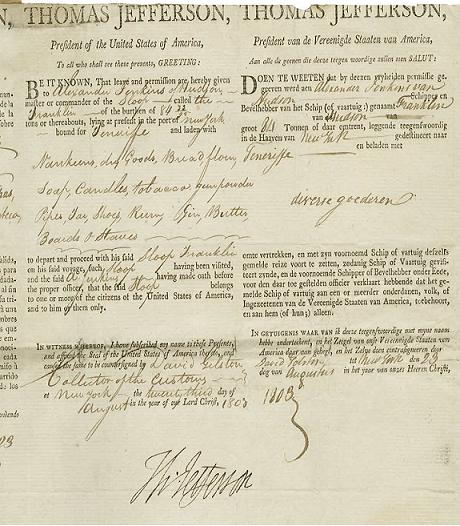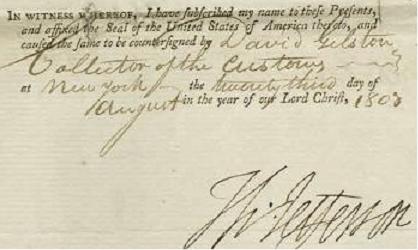Yesterday, I posted a note from Wallbuilder’s Caroline Henry to the American Academy of Pediatrics. The note addressed a previous Wallbuilder’s show during which David Barton claimed that the leading association of pediatricians in America warned schools to stop indoctrinating students into homosexuality. See the original post for details; in short the real leading association (the American Academy of Pediatrics) did not issue any such warning. The American College of Pediatricians a small group of socially conservative pediatricians and related professionals did so over a year ago. They are not a leading group of pediatricians.
The AAP wrote to Barton in order correct him and and via Caroline Henry, he wrote back to the AAP with the following message:
Hi Debora (sic),
Thank you for your email to WallBuilders Live, I apologize for the delay in response but I hope I can address your concerns!
After airing the episode about ACP David and Rick were informed that the news source they quoted during the episode was mistaken. David and Rick sent a letter to the news source addressing the mistaken information in the story. We apologize for the mix up and appreciate your notification as well.
If you have any further question or concerns please feel free to contact us. Many blessings!
Caroline Henry
wallbuilderslive.com
However, today, David Barton and co-host Rick Green addressed their earlier error but did not blame a faulty news source. Instead, they did not admit the error and declined to retract their earlier statements. You can hear the entire segment at the Wallbuilder’s site here; listen between 10:00 and 12:35. Right Wing Watch has most of the audio segment transcribed which I reproduce here:
Green: Actually David I got a—actually it’s not a retraction at all actually—we got a letter that wanted a retraction. Remember when we did the show? There was a great paper that was put out by the American Academy—I mean the American College of Pediatricians, and they were saying look some of this stuff you’re doing on homosexuality in schools is dangerous for kids, this homosexual agenda is not a good idea and bringing it into the classroom and that sort of thing. We did a whole program on this. In the program we talked about hey this is one of the leading pediatric associations in the nation, and we got a letter from one of the other pediatric associations, let’s see the American Academy of Pediatrics, which has more members and has been around a little longer and they I guess took offense to that so they sent us a letter and they said they wanted to make sure we knew that the ACP was not the leading pediatric association in America and they put some of their papers in here and there position is a little different I would say—
Barton: Oh yeah, oh yeah.
Green: Much more liberal on this. As we pointed out to them directly and we’ll put it out here on the show: leading does not mean largest, leading means, sometimes it takes a newer, leaner more responsive organization—
Barton: And they are one of the leading organizations. Now the fact that this other organization may not like them and may disagree with them doesn’t mean they’re not a leading organization. They are a credentialed organization made up of credentialed people and the fact that they don’t agree with them doesn’t make them less than leading. And if they’re expecting a retraction, sorry, ain’t happening!
Then, at 11:56, Barton says, “We didn’t get this one wrong.”
The closest thing to the sentiment expressed in the email to the AAP was this statement at 12:19, from Rick Green:
No, we do apologize if the American Academy of Pediatrics was offended by us calling the American College of Pediatricians a leading pediatrics association, but uh, sorry that you were offended, but we still think they’re leading and love the good work they are doing.
In their note to the AAP, Wallbuilder’s Caroline Henry called the earlier broadcast an error based on a faulty news source. On their broadcast to listeners, however, Barton and Green said there was no error. Which is it?
If Barton and Green were referring to the ACP all along, then they needs to issue a retraction to the ACP. About the ACP, they said:
Barton: What’s interesting is, you know medical groups do not tend to be very conservative. Any professional medical group, the American Psychiatric Association, the association of psychologists, even the American Medical Association is a particularly friendly conservative group, they’re not a pro-life group and what’s really interesting is the American College of Pediatricians; now think about that, is that a conservative group?
Green: You’d think they would be, looking out for the kids, right?
Barton: But yeah, don’t spank your kid, don’t touch your kid, you know, and think of the way pediatric stuff has gone, and you don’t want to help shape these kids, let ‘em be what they want to be. And so, all that anti-parental influence, and it’s remarkable that you have the American College of Pediatricians, who has just, they sent a letter to all 14,800 school superintendents in the United States and it’s a letter warning about what’s happening in the schools and the American College of Pediatricians is cautioning educators about what they do with same-sex attraction or symptoms of gender identity confusion in schools.
Green: You’re kidding, this is the pediatric association?
Barton: The American College of Pediatricians is cautioning educators about what they do with same-sex attraction or symptoms of gender identity or gender confusion in schools.
Green: You’re kidding, this is the Pediatric Association?
Barton: Got it, get this. The letter reminds school superintends that it is ‘not uncommon for adolescents to experience transient,’ that’s a big word, ‘transient confusion about their sexual orientation,’ and is telling 14,800 superintendents that ‘most students will ultimately adopt a heterosexual orientation if not otherwise encouraged.’ And they’re saying, guys, back off. This indoctrination you’re doing—
Green: You plant that stuff in their minds, your leading them down that path.
Barton: If you’ll just let this develop naturally, they’ll end up being heterosexual unless you force them to be homosexual. Well that’s a remarkable letter coming from the leading pediatric association in America. And this is what it says, ‘for this reason schools should avoid developing policies that encourage non-heterosexual attractions among students who may be experimenting or experiencing temporary sexual confusion.’ The discouraging program, so all this bullying stuff–
(emphasis mine)
A visit to the ACP website will make it clear that they are pro-life and not anything like the picture painted by Barton about medical groups. Since the ACP had been taking the same position on homosexuality from the beginning of the group, the letter to superintendents was not at all remarkable. It was just par for their course. It is also clear that Barton referred to the ACP as the leading group not just one of several groups.

